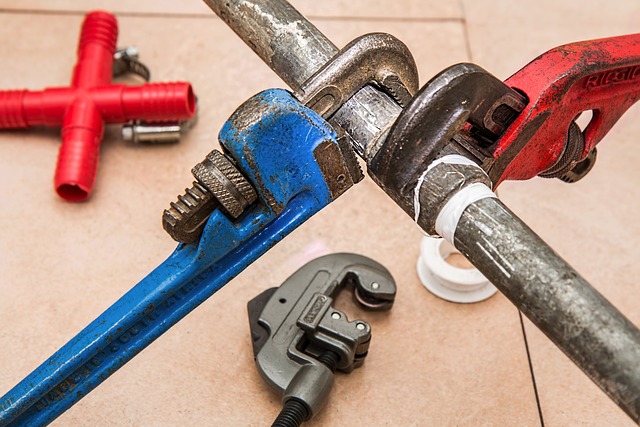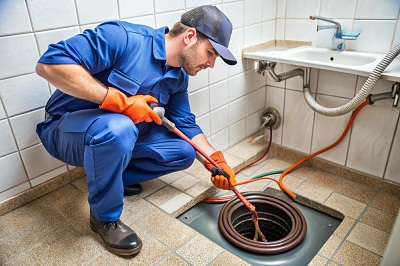Plumbing disasters are not only inconvenient but can lead to costly damage if not addressed in time. As homeowners, it is essential to take proactive measures in maintaining your plumbing system. Regular maintenance and early detection of issues can save you from emergency situations that can be expensive and time-consuming. Below, we provide comprehensive tips to help you prevent plumbing disasters.
1. Regularly Inspect for Leaks and Drips
One of the easiest ways to prevent major plumbing problems is by routinely checking for leaks and drips. Small leaks can quickly escalate into more significant issues. Regularly inspect faucets, showerheads, and pipes under sinks for any signs of water pooling or dampness. If you notice even the slightest leak, address it immediately. Over time, minor leaks can waste gallons of water and weaken your plumbing system.
Action Tip: Check for water stains or damp patches on walls and ceilings. These are often indicators of hidden leaks behind the walls, which can cause structural damage if ignored.
2. Clean Drains Regularly to Prevent Clogs
Clogged drains are one of the most common plumbing issues faced by homeowners. Regularly cleaning your drains can prevent these clogs from turning into full-blown blockages. Accumulated debris, hair, soap scum, and grease can create severe blockages if not cleared out regularly.
Action Tip: Use a mixture of baking soda and vinegar to clear drains naturally. Pour the baking soda down the drain, followed by vinegar. Let the mixture sit for 15 minutes before flushing it with hot water.
For kitchen sinks, avoid pouring grease and oil down the drain as they can solidify and lead to blockages. Instead, collect and dispose of them in a separate container.
3. Monitor Your Water Pressure
High water pressure may seem like a convenience, but it can put immense strain on your pipes, increasing the likelihood of leaks or burst pipes. Maintaining a healthy water pressure level is crucial for the longevity of your plumbing system.
Action Tip: Purchase a water pressure gauge from your local hardware store and attach it to an outdoor faucet to measure the water pressure. Ideally, your home’s water pressure should range between 40 and 60 psi (pounds per square inch). If it exceeds 80 psi, install a pressure regulator to bring it down to safer levels.
4. Insulate Your Pipes
Frozen pipes are a common cause of plumbing disasters, especially in colder climates. When water inside the pipes freezes, it expands, causing the pipes to crack or burst. Prevent this by insulating exposed pipes, particularly in unheated areas like the basement, attic, or garage.
Action Tip: Use pipe insulation foam or heat tape to wrap around pipes that are vulnerable to freezing. During extremely cold weather, leave faucets on a slow drip to keep water moving through the system, preventing it from freezing.
5. Test Your Water Heater Regularly
A malfunctioning water heater can not only leave you without hot water but also result in leaks and floods. Regular maintenance of your water heater is essential to ensure that it is functioning optimally.
Action Tip: Once every few months, drain a few gallons of water from your water heater to remove sediment buildup that can reduce efficiency and cause corrosion. Additionally, check the pressure relief valve to make sure it is operating correctly. If your water heater is more than 10 years old, consider replacing it with a more energy-efficient model.
6. Avoid Chemical Drain Cleaners
While chemical drain cleaners may seem like a quick fix for clogged drains, they can actually cause more harm than good. These chemicals can erode your pipes over time, leading to leaks and expensive repairs.
Action Tip: Opt for mechanical drain cleaning tools like a plunger or a drain snake to clear blockages. For persistent clogs, it’s best to call a professional plumber who can safely and effectively address the issue.
7. Know the Location of Your Shut-off Valves
In the event of a plumbing emergency, such as a burst pipe or significant leak, knowing where your water shut-off valves are located can save you from extensive damage. Every homeowner should be familiar with the main water shut-off valve as well as any localized valves for sinks, toilets, and appliances.
Action Tip: Take the time to locate your main shut-off valve, typically located where the water line enters your home. Test the valve to ensure it works properly, and teach family members how to use it in case of an emergency.
8. Prevent Sewer Line Backups
Sewer line backups are not only messy but can also cause severe damage to your home. Tree roots, grease buildup, and non-flushable items are common culprits of sewer line blockages. Taking preventative measures can help you avoid a costly and unpleasant backup.
Action Tip: If you have large trees on your property, have a plumber inspect your sewer lines annually for root intrusion. Avoid flushing items like paper towels, wipes, and feminine hygiene products, as they can cause significant blockages.
9. Install a Sump Pump in Your Basement
If your home has a basement, it’s essential to protect it from flooding. A sump pump can help prevent water from accumulating and causing damage to your foundation or belongings. It’s an invaluable investment, especially in areas prone to heavy rainfall or high water tables.
Action Tip: Test your sump pump at least once a year to ensure it’s functioning correctly. Pour a bucket of water into the sump pit, and watch to see if the pump activates and removes the water efficiently.
10. Schedule Annual Plumbing Inspections
Even with regular DIY maintenance, it’s crucial to have a professional plumber conduct an annual inspection of your plumbing system. A trained eye can detect issues that might go unnoticed and provide solutions before they escalate into major problems.
Action Tip: During a professional inspection, ask your plumber to check your water pressure, inspect for hidden leaks, examine your water heater, and assess the condition of your pipes and fixtures.
By following these essential maintenance tips, homeowners can significantly reduce the risk of plumbing disasters and ensure the longevity of their plumbing systems. Regular upkeep and preventive care will not only save you from costly repairs but also help maintain the overall value and comfort of your home.



